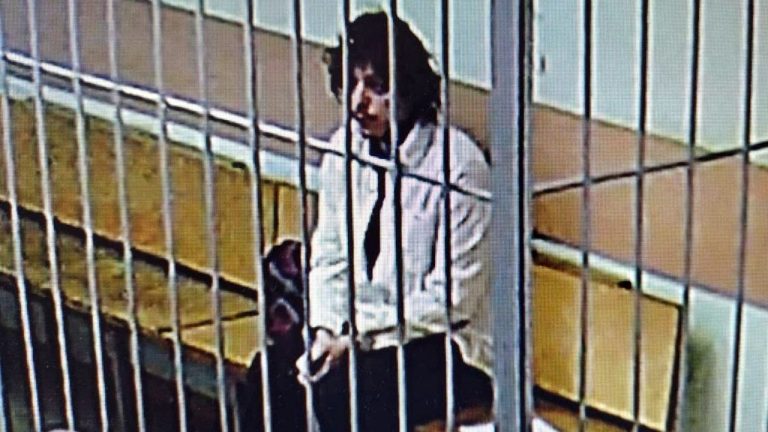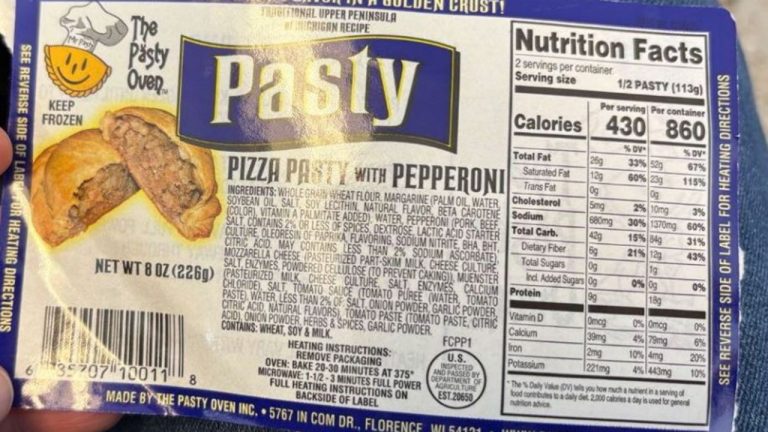
Jewish Family Service of San Diego will shut down a regional migrant shelter it ran for more than six years and lay off 115 employees due to “changes in federal funding and policy” by the Trump administration.
The nonprofit, which will now focus its immigrant-relief efforts on providing pro bono legal services, announced the layoffs in a required filing submitted Monday to the state Employment Development Department.
Jewish Family Service said that once the layoffs are finalized in April — the law requires 60 days notice for mass layoffs — it will cease operations of its San Diego Rapid Response Network migrant shelter services.
The organization said in a statement that its transition shelter — which provided medical screenings, food, case management, legal support and travel coordination — has received no new migrants since Inauguration Day, when the Trump administration ended use of the CBP One app.
That app had allowed migrants to schedule asylum interviews at ports of entry and be released into the U.S. while awaiting updates on their asylum claims.
The organization also said it has not received any of the $22 million it was awarded last year by the Federal Emergency Management Agency’s Shelter and Services Program.
“Our commitment to immigrants and refugees remains unwavering,” CEO Michael Hopkins and his future successor, Dana Toppel, wrote this week for San Diego Jewish World.
In a statement, Hopkins said Jewish Family Service had “been preparing for these changes in federal policies and enforcement” and that the organization will maintain its “deep commitment to its core value of ‘Welcome the Stranger’” by pivoting to focus more on the legal services that it already provides.
Those services include representation for people facing deportation, free immigration legal services for students and faculty at 12 community colleges and universities in San Diego and Imperial counties and legal assistance for recipients of Deferred Action for Childhood Arrivals.
“We’ve bolstered our staff and volunteer efforts for pro bono legal immigration services, especially for immigrants and undocumented members of our community,” the organization said.
The jobs that Jewish Family Service will cut, which are listed in its filing with the EDD, appear exclusively linked to its migrant shelter and the related services it offered. The nonprofit said it is “working to identify any potential opportunities for re-engagement with our valued Shelter Services staff in other departments in the future.”
The initial version of the shelter popped up in October 2018 when the first Trump administration ended the “Safe Release” program, which had involved Immigration and Customs Enforcement officers helping asylum seekers to connect with their U.S. sponsors and coordinate their travel plans.
When that program ended, federal officials began instead to drop off asylum-seeking families on the streets of San Diego with few resources and no guarantee they could contact their sponsors or coordinate travel.
The San Diego Rapid Response Network, an immigrant-rights coalition founded in 2017, responded to the end of “Safe Release” by starting its migrant shelter services. Jewish Family Service became the main operator as the project evolved and grew but got support from elected officials, volunteers and other nonprofits.
The shelter provided services to more than 248,000 asylum seekers since it first launched in 2018, prioritizing the most vulnerable people, such as families, pregnant women, LGBTQ+ people and those with medical conditions. Hopkins called it a “national model for welcoming a large number of people” to the U.S. and thanked the volunteers, elected officials, donors and community members who made it possible.
“They are the gold standard,” Naomi Steinberg of HIAS, an international nonprofit that supports refugees, told The San Diego Union-Tribune in 2022. “They have really shown organizations around the country about how it can be done and how it should be done.”
Hopkins offered particular praise to the shelter’s staff “for their tremendous, round-the-clock work to welcome with dignity every day,” he said in a statement. “We are proud of what we accomplished together — centering humanity, prioritizing public health and keeping hundreds of thousands of new people from becoming homeless on the streets of San Diego. Moving forward, there is much more work to be done to welcome newcomers and help our neighbors.”
The shelter was funded largely through a variety of grants from the county, the state and the federal government. Tax documents show Jewish Family Service of San Diego received $47.9 million in government grants in the fiscal year ending in June 2023, the most recent filing available. It got about $20.4 million in other contributions that year.
Most recently, the organization was awarded $22 million last September from FEMA’s Shelter and Services Program. In the same round of funding, FEMA also awarded $21.6 million to Catholic Charities, Diocese of San Diego, which also provides transition shelter services to migrants.
Jewish Family Service said this week that it has still not received any of the FEMA money, which is typically paid out as reimbursements for expenditures.
It’s unclear if the Trump administration, which last month suspended federal funding for 10 resettlement agencies, will honor the previously announced SSP commitments.
Earlier this week, his administration revoked $80 million it had already reimbursed New York City through SSP, which President Trump initiated during his first presidency. The program uses money from U.S. Customs and Border Protection and has nothing to do with disaster relief.
Asked if new administration policies would also affect Catholic Charities’ shelter services or funding, CEO Vino Pajanor said in a statement: “Our shelters are still operational, and we are continuing to monitor the situation closely.”
Last year, after San Diego County was awarded $19.6 million of the same FEMA SSP funds, county officials chose Jewish Family Service to run a new county-led migrant center.
But the deal fell apart in September after months of negotiations. The two sides said they were “unable to develop a plan to meet the scope of work required to address the needs of migrants in the region based on federal funding criteria.”
The county then chose a different contractor to run its migrant center, but that deal also fell apart late in the year. County spokesperson Tammy Glenn said at the time that the work toward a new center had been paused so the county could consider its options.
Glenn said Friday that the work remained paused and that “an evaluation is expected to be shared with the Board of Supervisors in the coming months.”






